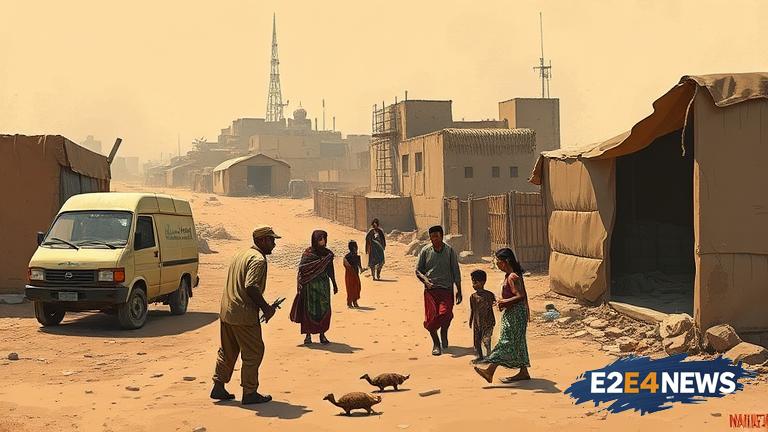The Israeli government has announced the resumption of aid deliveries to the Gaza Strip, following a period of suspension due to security concerns. The move comes as warnings of an impending famine in the region have escalated, with the United Nations and other organizations sounding the alarm over the humanitarian crisis. The Gaza Strip has been under a blockade by Israel and Egypt since 2007, which has severely limited the flow of goods and people into and out of the territory. The blockade has had a devastating impact on the economy and living standards in Gaza, with high levels of poverty and unemployment. The United Nations has warned that the situation in Gaza is becoming increasingly dire, with food and medicine in short supply. The organization has called for an immediate end to the blockade and for the international community to provide urgent assistance to the people of Gaza. The Israeli government has said that it will allow aid deliveries to resume, but has warned that it will continue to maintain security measures to prevent the entry of goods that could be used for military purposes. The decision to resume aid deliveries has been welcomed by humanitarian organizations, which have warned that the situation in Gaza is becoming increasingly desperate. The organizations have called for a long-term solution to the crisis, including an end to the blockade and the establishment of a permanent and secure route for the delivery of aid. The Gaza Strip is home to over 2 million people, many of whom are dependent on international aid to survive. The territory has been the scene of repeated conflicts between Israel and Palestinian militants, which have resulted in significant damage to infrastructure and a major humanitarian crisis. The international community has been criticized for its response to the crisis, with many arguing that more needs to be done to address the root causes of the problem. The United States, the European Union, and other major powers have been accused of failing to take adequate action to pressure Israel to lift the blockade and allow for the free flow of goods and people into and out of Gaza. The situation in Gaza has been further complicated by the ongoing conflict between Israel and Hamas, the militant group that controls the territory. The conflict has resulted in the deaths of thousands of people and the displacement of many more. The international community has called for a ceasefire and for a return to negotiations aimed at finding a lasting solution to the conflict. Despite the challenges, there are signs that a solution may be possible. The Israeli government has said that it is willing to consider a long-term ceasefire, and there have been reports of secret talks between Israel and Hamas aimed at finding a way to end the conflict. The United Nations has also announced plans to increase its aid deliveries to Gaza, in an effort to address the humanitarian crisis. The organization has warned that the situation in Gaza is becoming increasingly desperate, and that urgent action is needed to prevent a famine. The international community has been urged to provide more support to the people of Gaza, including through the provision of food, medicine, and other essential supplies. The situation in Gaza is a complex and challenging one, and it will require a sustained and coordinated effort to find a solution. The international community must work together to address the root causes of the crisis, including the blockade and the conflict between Israel and Hamas. Only through a concerted effort can we hope to find a lasting solution to the crisis and prevent a famine in Gaza. The people of Gaza are in urgent need of our help, and it is our responsibility to act. The United Nations and other humanitarian organizations are working tirelessly to provide aid to those in need, but more needs to be done. The international community must come together to provide the necessary support to the people of Gaza, and to work towards a lasting solution to the crisis. The situation in Gaza is a humanitarian crisis of epic proportions, and it requires a response of equal magnitude. We must act now to prevent a famine and to address the root causes of the crisis. The people of Gaza are counting on us, and we must not fail them.
